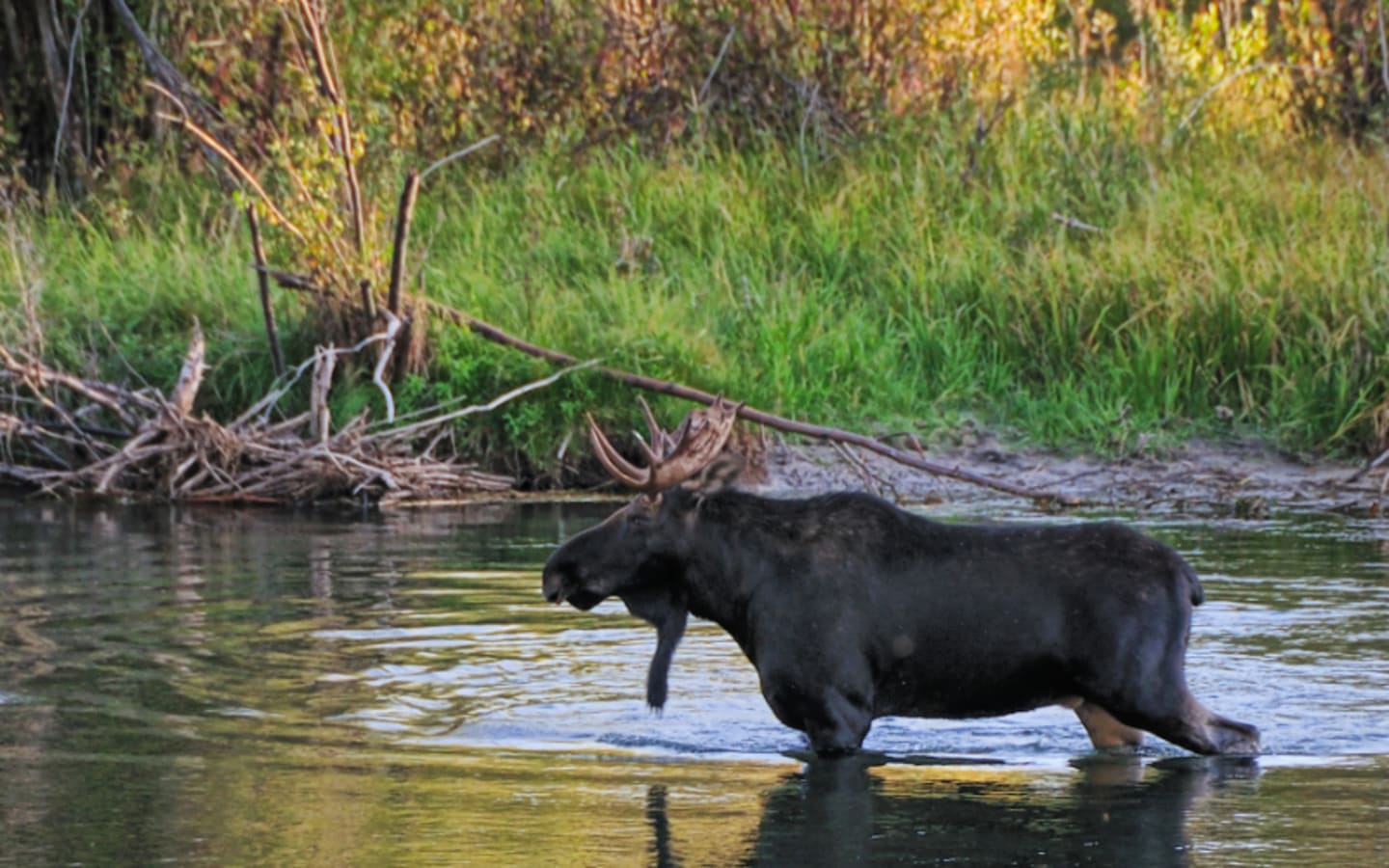In a quiet corner of northern Idaho, a group of hunters took a stand against illegal wildlife activity, leading to a significant conviction that has resonated with outdoor enthusiasts across the state. On November 6, 2024, in Kootenai County, Raymond Black, a resident of Kellogg, Idaho, illegally killed a bull moose, sparking a chain of events that ended with a felony conviction and a lifetime hunting ban. This case highlights the importance of community vigilance and the severe consequences of violating wildlife laws in Idaho, a state known for its rugged landscapes and cherished natural resources.
The incident began when Black shot a bull moose on a U.S. Forest Service Road, an act that broke multiple laws. In Idaho, moose hunting is tightly regulated, with tags considered a rare, once-in-a-lifetime opportunity for hunters. Black, however, did not possess a moose tag, making his kill unlawful from the start. Compounding his mistake, he used a high-powered rifle to shoot the animal while it stood on the forest service road, a location where discharging firearms is strictly prohibited. The moose, a trophy species valued for its size and rarity, was left to waste, further escalating the severity of Black’s actions.
After killing the moose, Black attempted to load the carcass into his vehicle, likely intending to claim the animal despite his lack of a tag. However, his plan quickly unraveled when his vehicle became stuck in the snow, stranding him in the backcountry. Forced to abandon his efforts, Black walked out of the area and encountered two hunters who offered him assistance. During their interaction, Black shared details of his moose kill, but his story didn’t add up. The hunters, sensing something was amiss, took note of his license plate and later contacted authorities, a decision that proved pivotal in bringing him to justice.
The Idaho Department of Fish and Game (IDFG) acted swiftly upon receiving the tip through their Citizens Against Poaching hotline. Armed with the hunters’ information, IDFG wardens obtained a search warrant for Black’s residence in Kellogg. The search yielded critical evidence, including a rifle believed to have been used in the illegal kill. Faced with mounting evidence, Black eventually pleaded guilty to a felony charge of unlawful killing, possession, or wasting of wildlife. In Idaho, the charge was elevated to a felony due to the moose’s status as a trophy species, which carries a “reimbursable damage amount” of $10,000 when illegally taken. This valuation reflects the significant ecological and cultural value of moose in the state.
On July 8, 2025, Black faced sentencing in Kootenai County District Court. The penalties were substantial, underscoring Idaho’s commitment to protecting its wildlife. Black was ordered to serve six months in county jail and pay $1,500 in fines, $10,000 in restitution for the moose, $250 in meat processing fees, and $245 in court costs. Perhaps most significantly, he received a lifetime ban on hunting and trapping in Idaho, a restriction that extends to all U.S. states except Hawaii. For someone who may have valued time in the outdoors, this ban represents a profound consequence, effectively barring Black from participating in hunting activities for the rest of his life.
The IDFG praised the hunters who reported Black, emphasizing their role in upholding conservation efforts. Their quick thinking and willingness to act ensured that the case was brought to light, preventing further harm to Idaho’s wildlife. Moose are a prized species, and their populations are carefully managed to maintain healthy ecosystems. Illegal activities like poaching threaten not only individual animals but also the balance of natural resources that hunters, anglers, and outdoor enthusiasts rely on. The hunters’ decision to report Black through the IDFG’s hotline demonstrated the power of community involvement in safeguarding these resources.
This case also serves as a reminder of the legal and ethical responsibilities that come with spending time outdoors. Idaho’s wildlife regulations are designed to ensure sustainable populations of game animals, allowing future generations to enjoy the same opportunities. Poaching, especially of a trophy species like a moose, undermines these efforts and carries steep penalties to deter such behavior. The financial and legal repercussions faced by Black—totaling over $11,000 in payments and a permanent loss of hunting privileges—illustrate the high cost of disregarding these laws.
For those who cherish time in the wilderness, whether tracking game or simply soaking in the beauty of places like Kootenai County, this story is a call to action. It shows that everyday people can make a difference by staying vigilant and reporting suspicious activity. The IDFG’s Citizens Against Poaching hotline remains a vital tool for protecting wildlife, and this case proves its effectiveness. The hunters who stepped up didn’t just help catch a poacher; they helped preserve Idaho’s natural heritage for everyone who values it.
As outdoor recreation continues to draw people to Idaho’s forests and mountains, stories like this one highlight the shared responsibility to protect the land and its inhabitants. The conviction of Raymond Black sends a clear message: illegal actions against wildlife will not be tolerated, and those who break the law will face consequences that ripple far beyond a single moment of poor judgment. Thanks to the hunters who took a stand, Idaho’s wildlife has a stronger chance of thriving for years to come.





